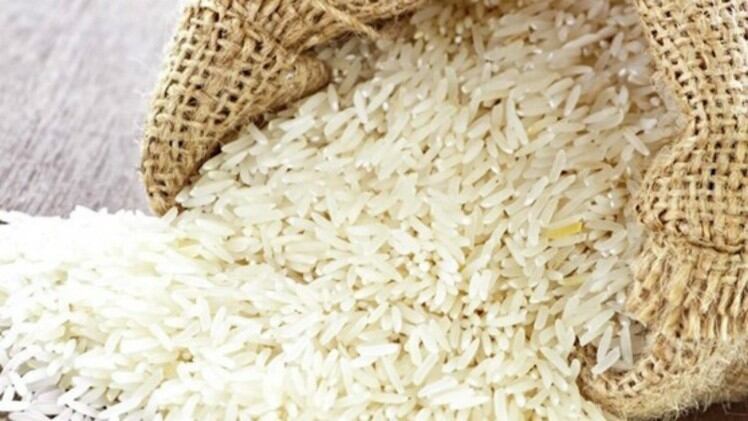Rice crisis over? Philippines looks at removal of suggested retail prices as market stabilises
The Philippines Department of Trade and Industry (DTI) is considering the removal of suggested retail prices (SRPs) for rice in the wake of the rice tariffication law being signed earlier this year.
Amid rapidly rising prices due to a shortage crisis last year, in October the government had implemented SRPs of (per kilogramme), PHP39 (US$0.73) for imported well-milled rice, PHP40 (US$0.74) for imported premium (Pakistan, India, China), and PHP43 (US$0.80) for imported premium (Thailand, Vietnam).
For local varieties, SRPs for local regular-milled rice were set at PHP39 (US$0.73), local well-milled at PHP44 (US$0.82), and local premium at PHP47 (US$0.87).
According to DTI monitoring, rice prices are now mostly hovering in the range of PHP 34 (PHP0.66) to PHP39 (US$0.73) per kilogramme, and as low as PHP32 (US$0.62) per kilogramme in some areas.
“We saw the prices now and we think that this is the right range, [and] we're hoping that it goes even lower,” said Trade Secretary Ramon Lopez to Rappler.
Coconut oil adulteration: FSSAI bans 14 brands in India as new detection method gains traction
The Food Safety and Standards Authority of India (FSSAI) has banned 14 brands of coconut oil in the southern state of Kerala, citing the detection of adulteration.
In an article published on the FSSAI website, an official confirmed that laboratory tests had conclusively proved that the coconut oil products had been adulterated.
“[FSSAI has] banned the production, procurement and distribution of these 14 coconut oil brands, [and] these will face strict action,” she said.
Amongst the brands named as offenders were Surabhi and Soubaghya, both produced by Balakumaran Oil Mills.
Of note is the fact that such bans have taken place multiple times before in Kerala. In December last year, FSSAI had banned another 70 coconut oil brands in the state, June saw 51 bans and May saw 45 bans.
Including the latest ban updates, the total number of coconut oil bans that have been instated in the state so far has reached 180.
“If the unsafe food articles are not recalled with immediate effect, the very purpose of the Food Safety Act will be defeated and it may lead to serious public health issues,” said FSSAI.
Raw potential? New Zealand opens raw milk regulations review for consultation
The New Zealand Ministry of Primary Industries (MPI) has launched an online survey seeking public consultation on the efficacy of current regulations surrounding raw milk.
Two types of questionnaires are currently available on the MPI website: One for suppliers and one for consumers, both with deadlines set for the end of this month.
According to MPI, the public opinion survey is being held to ‘determine whether the rules for processing and selling raw drinking milk in New Zealand are working as intended’ and that if any changes are made to the regulations, further opinions would be sought.
It is part of the overall review that MPI is holding into raw milk regulations which began in November last year.
“This work is not about rewriting the rules nor making radical changes. It is an assessment of the existing system,” it said.
The current raw milk sales regulations entered into force in 2016, and were aimed at ‘better managing the risks to public health while recognising the consumers demand for raw milk’. Back then, a public consultation was also held before the regulations came into effect.
Before these regulations, consumers were able to collect raw milk from collection points across the country.
‘No leniency’: Punjab Chief Minister orders ‘indiscriminate’ crackdown on food adulteration through Ramadan festival
Punjab Chief Minister Sardar Usman Buzdar has ordered for ‘indiscriminate action’ and surveillance by the Punjab Food Authority (PFA) to be carried out in the province throughout the Ramadan festival period.
In a department meeting at the PFA head office earlier this week, Sardar described food adulterators as ‘not deserving of any leniency’.
“[Although] PFA is already active against food adulteration, [even stricter] implementation of PFA laws [will ensue] during Ramadan-ul-Mubarak,” he told local media.
PFA Director-General Captain (R) Muhammad Usman Younas has already prepared for such an initiative, having directed PFA officers and heads of the various departments to prepare round-the-clock duty schedules in preparation for Ramadan, which begins on May 5.
Additionally, special teams to monitor for ‘suspicious activities’ during the sehri (pre-dawn meal before starting fast) and iftar (evening meal after breaking fast) timings will be formed.


